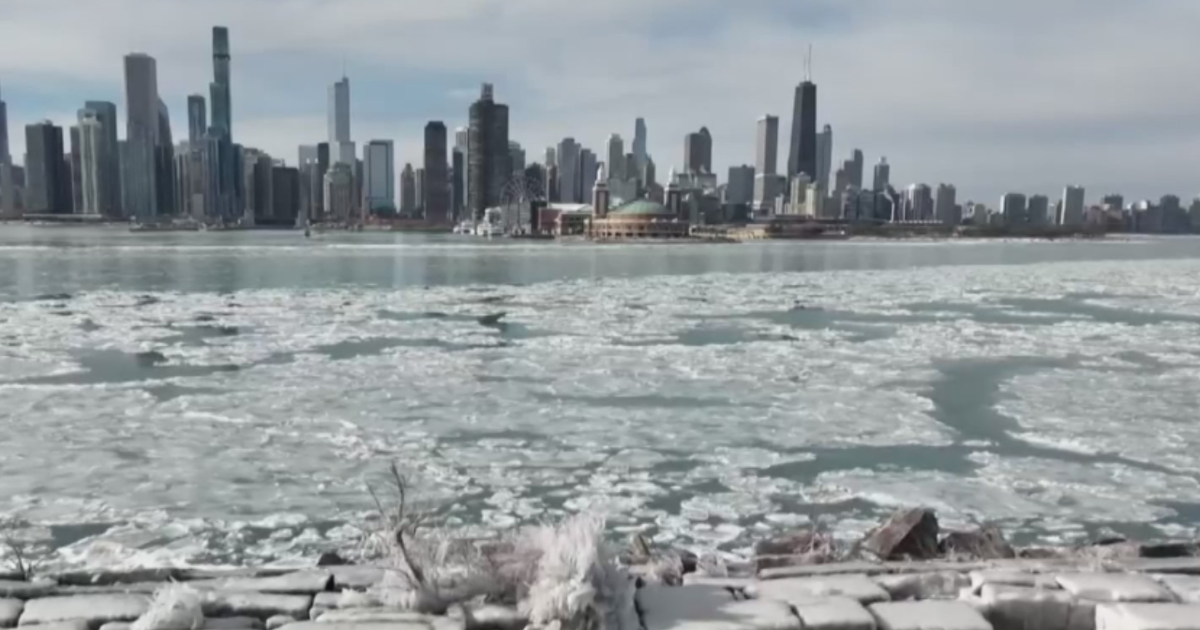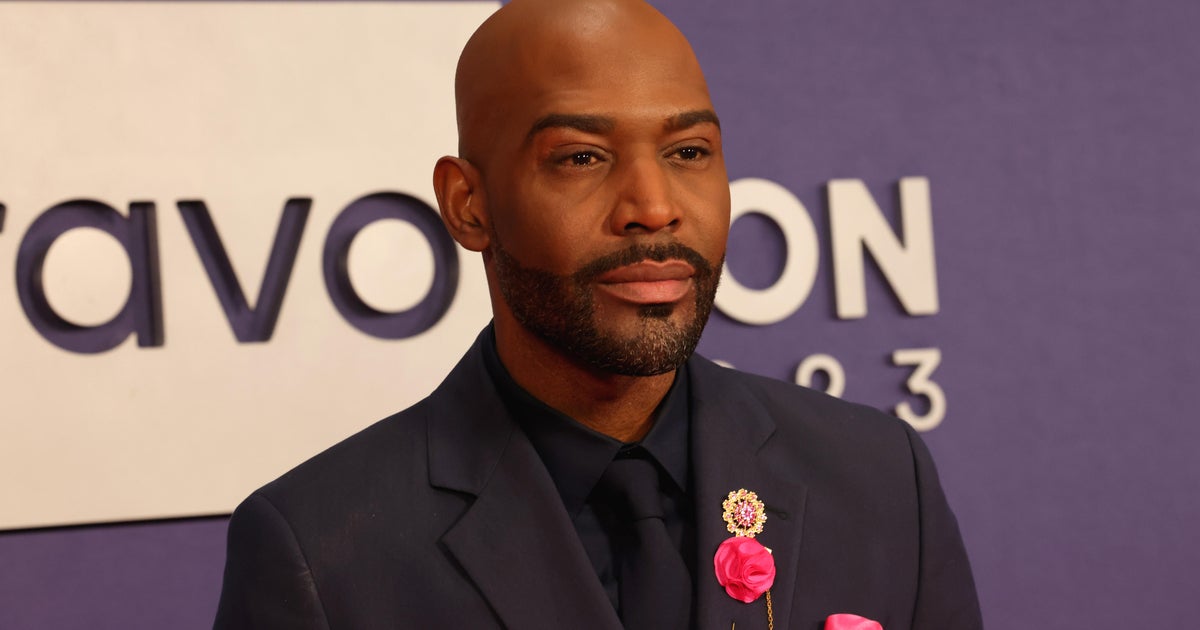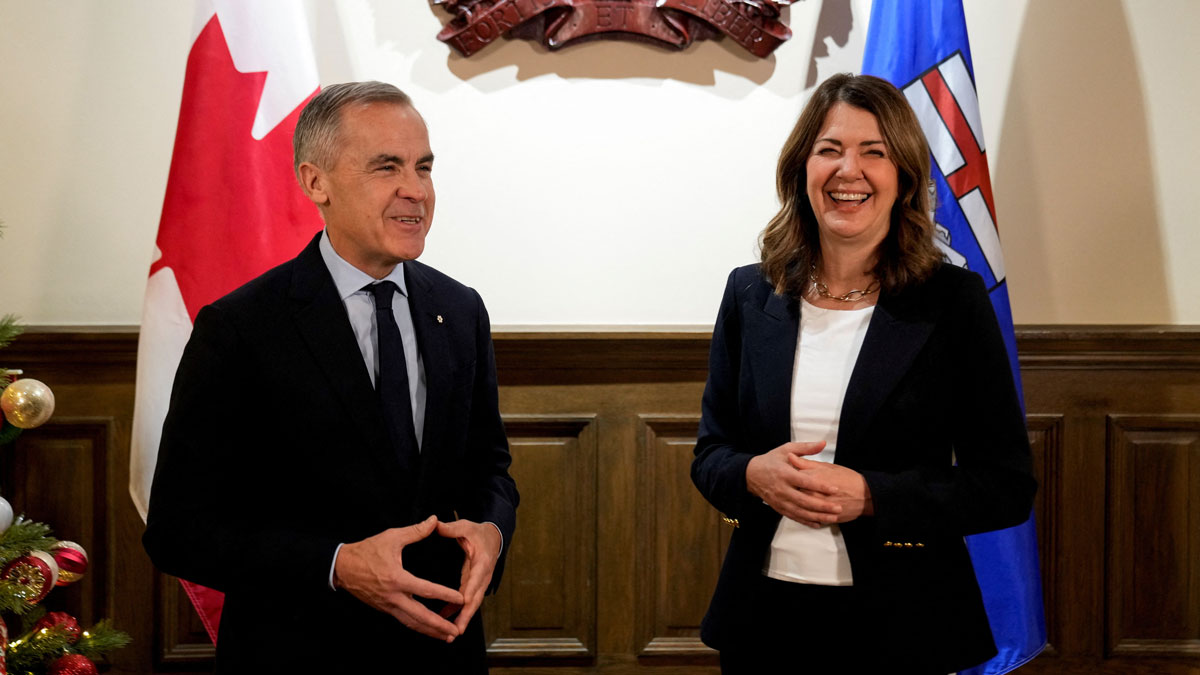"War on nature" is "suicide" and climate action needs American leadership, U.N. chief says
United Nations – Humans are waging "war on nature," according to U.N. Secretary General António Guterres, and the world is close to a "breaking point" if leaders don't come together now to change course.
"There is a growing consciousness that the way we are moving is a suicide in relation to the future and to all future generations," Guterres told "CBS This Morning" co-host Tony Dokoupil in an interview that aired Wednesday.
The U.N. chief has been warning against the dire impact of climate change for years and made his case in a speech on "the state of the planet" at Columbia University in New York Wednesday.
"Nature always strikes back – and it is already doing so with growing force and fury; biodiversity is collapsing; ecosystems are disappearing before our eyes; and oceans are … choking with plastic waste," Guterres said.
In his address, Guterres outlined the needed action: To achieve global carbon neutrality within the next three decades; to align global finance behind the Paris Agreement, "the world's blueprint for climate action"; and to "deliver a breakthrough on adaptation to protect the world … from climate impacts."
Guterres calls for more conservation areas that are "biodiversity-positive" for agriculture and fisheries. He also urges a phasing out of negative subsidies – subsidies that destroy healthy soils, pollute waterways and deplete the fish in the oceans – and a shift away from unsustainable extractive resource mining and toward more sustainable consumption patterns.
And, focusing on the role of the environment in the pandemic, Guterres pointed to a startling fact: "75% of new and emerging human infectious diseases are zoonotic," he says, meaning they come from animals. He warns that with "people and livestock encroaching further into animal habitats and disrupting wild spaces, we could see more viruses and other disease-causing agents jump from animals to humans."
Despite a temporary drop in emissions due to the COVID-19 lockdown, atmospheric concentrations of greenhouse gases remain at record highs, committing the planet to further warming for many generations to come because of the long lifetime of CO2 in the atmosphere, according to a new World Meteorological report released on Wednesday.
"The past decade was the hottest in human history," Guterres said. "Apocalyptic fires and floods, cyclones and hurricanes are increasingly the new normal."
Guterres spoke with Dokoupil from U.N. Headquarters in New York as part of "Covering Climate Now," an initiative of more than 400 news outlets dedicated to explaining the dangers of a warmer earth. Here are excerpts of their conversation:
Tony Dokoupil: Mr. Secretary General, you are preparing a major address on climate change. It is called the State of the Planet. So let's begin there. What is the state of the planet?
Antonio Guterres: We are at war with nature. And this creates the serious risk to have a broken planet as we move on towards the end of the century. We are still in line with an increase of temperature of 3° to 5° [Celsius] in the end of the century.
That would be absolutely devastating for the world economy and for human life...Forests that are disappearing, glaciers that are melting, coral reefs that are bleaching and being destroyed.
So it's time for the war between humankind and nature to end. It's time to reconcile humankind with nature. It's time to make peace with nature, and to do everything possible for our planet in the end of the century to be something we can be proud of, and where our children and grandchildren can live a normal life.
Mr. Secretary General, how close are we to a breaking point?
I think we are very close to the breaking point. If you look at temperature, we are now with an increase of temperature, an average increase of temperature of about 1.2° [Celsius]. We want to have 1.5° as the limit. So we are very close to the breaking point.
And if we do not act immediately, things will be irreversible. And when things are irreversible, then it means that the future of our children and grandchildren will be dramatically impacted. So this is the moment to change course. And that is why for the U.N. in 2021 we have a very clear objective.
And our objective is to build a global coalition for net zero emissions in 2050, for carbon neutrality.
Why do you think it's possible now when the United Nations has been talking about this for 30 years, and in that time, the problem has only gotten worse?
Now we are not alone. We see the youths mobilizing in fantastic ways all over the world. We see entrepreneurs gaining conscience. We see asset owners telling that they need to decarbonize their portfolios, because if not they will lose money in the future.
We see more and more companies saying that they need to align themselves with net zero emissions. We see pressure coming from civil society. So governments that until now, to a certain extent, thought that they could do whatever they wanted, are now under enormous pressure by public opinions, by the youths, by the private sector.
How important was it for Joe Biden to have won the election in 2020?
I think that the fact that the incoming administration has announced that they will again join the Paris Agreement, and they will commit to net zero emissions in 2050 is absolutely crucial to rescue the planet.
And I believe this is a fundamental contribution. There is no way, no way we can solve the problems of the relationship between humankind, nature, between us and the planet, without a strong American leadership.
The world's oil and gas companies have trillions of dollars of oil and gas that they know about, that they're waiting to dig up and to sell. Who is going to pay those companies to not dig it up and burn it?
The value of companies in history changes with the changing conditions of the global economy. There was a cycle of oil as the key engine of the world economy. That cycle is finished. So the value of oil and gas companies will diminish as the value of coal companies is already diminishing.
So I'm totally convinced, totally convinced that inevitably the history of humankind will be a history such that a lot of the oil and gas that is today in the soil will remain in the soil.
Mr. Secretary General, the United States pulled out of the [Paris] Agreement … nothing happened. No repercussions. What message does that send to the rest of the world?
I would say the majority of the countries have not been able to fulfill their commitments made in Paris. And this is what I believe will change course, because there is a growing consciousness that the way we are moving is a suicide in relation to the future and to all future generations.
It is clear for me that if we would leave temperatures at 3° or 5° increase at the end of the century, the conditions of living in our planet will be severely undermined.
So to take your metaphor, the world is on the ledge, and your job is to convince the world to step off of it rather than jump.
It is true.





